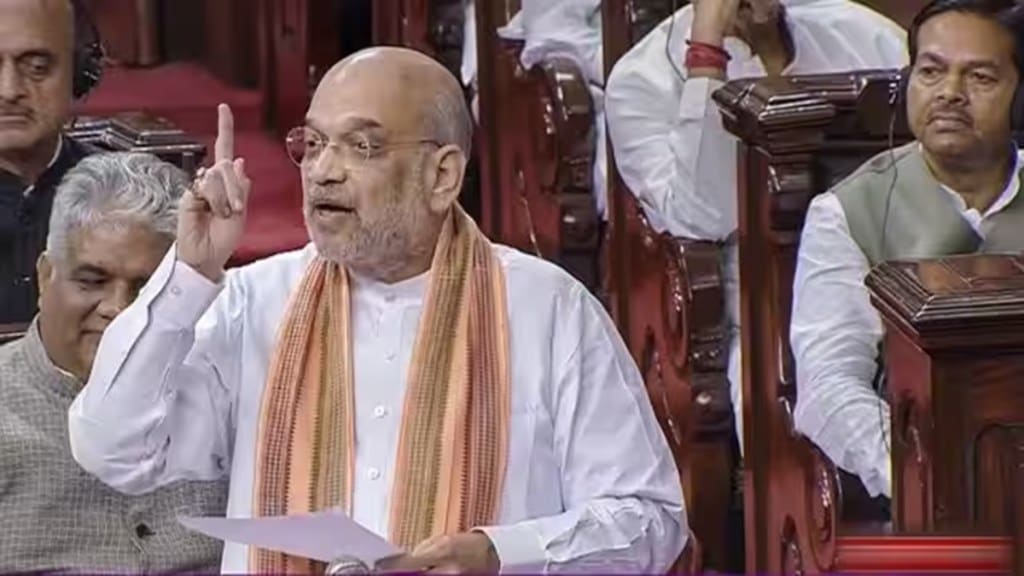The Delhi Services Bill—officially called the Government of the National Capital of Delhi (Amendment) Bill 2023— was passed by Parliament on Monday. The Aam Aadmi Party (that is in power in the national capital) and other opposition parties have criticised it as being ‘unconstitutional’. We explain the Bill’s key provisions and why it has the opposition seeing red
Background
The Centre brought the Delhi Services Ordinance on May 19, just days after the Supreme Court ruled that the government of Delhi could administer the civil services in the NCT and limited the control of the Centre-appointed lieutenant governor (L-G) to just public order, police, and land.
The matter dates back to 2015, when the Centre appropriated powers over the civil services via a home ministry notification that said the L-G would consult the NCT CM at her/his discretion. But, the ordinance created the National Capital Civil Service Authority (NCCSA) with the CM as the chair and the GNCT chief secretary and principal home secretary as members, to recommend to the L-G on GNCT civil service matters (except on land, police & public order) via majority voting. The L-G would have the final say.
The Delhi Services Bill
The Delhi Services Bill—the GNCT of Delhi (Amendment) Bill 2023—will replace the ordinance. It retains the NCCSA, and confers sole authority on the L-G for purposes listed under Section 41 of the principal Act.
Section 3A of the ordinance set limits to the powers of the Assembly by explicitly nixing any ability to legislate regarding the “state public services” and the “State Public Service Commission”. This has been dropped in the Bill passed by Parliament. Section 45D of the ordinance gave the power to decide on constitution of boards, authorities, commissions, etc, solely to the Centre. The Bill, with respect to laws made by the Delhi Assembly, tasks the NCCSA to recommend suitable candidates to the L-G. Also, while the ordinance required the NCCSA to submit an annual report to Parliament and the Delhi Assembly, the Bill does away with this—it won’t be answerable to the legislatures having a say over the NCT’s governance.
What the Supreme Court had said…
The May 11 judgment vested the control of the services with the council of ministers of the GNCT, under the “triple chain of command” (TCC) principle, where the services are accountable to the ministers who are accountable to the legislature which, in turn, is accountable to the people of NCT. But by allowing the services—via NCCSA membership for the two senior GNCT bureaucrats—to overrule the council of ministers (represented by the CM), the Bill trashes the TCC principle.
While the Centre had argued in court that the NCT wasn’t a fully fledged state, and, as an Union Territory, was extensively under the Union government, the top court cited Article 239 A(3) to say that the GNCT had legislative powers that resembled that of the states’, and the elected government was accountable to the people of NCT. The Bill, by denying the GNCT authority over the services, has upended the SC judgment.
How the Bill’s provisions will translate on the ground
A key impact on the ground would have its origin in the new Section 45D. The new provision means the L-G will have the final say on who gets appointed as a member or the head of the Delhi Jal Board and the Delhi Electricity Regulatory Commission—these have been seminal for the announcement and implementation of flagship schemes relating to free delivery of utilities by the present government of the national capital territory. The schemes are widely viewed as central to the Aam Aadmi Party’s appeal.
Section 45 (I) (4) seems to give supervisory powers to the bureaucracy over the functioning of the Delhi government. It tasks the officers heading the departments of the government to keep a watch on such proposals, policies, decisions and other issues that, (in their opinion), matters which affect the Delhi government’s relationship with the Union government, or any state government, the Supreme Court of India or the High Court of Delhi and such other authorities as may be determined. The secretary concerned, according to this provision, must inform L-G, CM and Delhi’s chief secretary of such issues.

